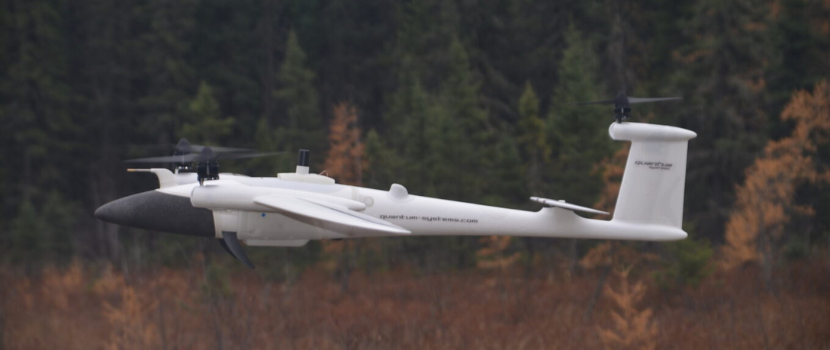
International partnership aims to enhance Indigenous land stewardship through community-driven research
December 11, 2023 – Saskatchewan Polytechnic, in partnership with Prince Albert Model Forest and Filipino non-profit organization Daluhay, Daloy ng Buhay (flow of life), is embarking on a groundbreaking applied research project focused on digitizing information and developing data management tools for community-based, sustainable resource management. This project will help position Indigenous communities to contribute to environmental policy and program initiatives at regional, national and international levels. This is the first college/polytechnic project funded through Canada’s Tri-Agency New Frontiers in Research Fund (NFRF).
Leveraging Sask Polytech's expertise in remote sensing, remotely piloted aircraft systems, GIS and natural resource management, the team will digitize and develop data management tools for community-identified priorities in land and water stewardship. This could include mapping of traditional ecological knowledge related to hunting, trapping, sacred areas, and watershed biodiversity and restoration according to community needs. The team will also draw on open-source geospatial data for mapping environmental parameters of interest.
“This international partnership between Saskatchewan and the Philippines seeks to build capacity for Indigenous stewards of the land to access and utilize digital data for community-based resource management,” says nominated principal investigator Dr. Susan Blum, associate vice-president, Applied Research and Innovation at Sask Polytech. “Through this collaboration, the team aims to enhance access to digital spatial resources and empower community members with the skills needed to gather, manage and interpret data alongside Indigenous and local knowledge. By providing communities with robust data and training, we seek to foster positive change through community-driven action research.”
Daluhay brings expertise in working closely with Indigenous and artisanal coastal fishers and farmers to develop community resource management strategies and capacity-building. Prince Albert Model Forest, a northern Saskatchewan non-profit, contributes expertise in community building founded on sustainable forest management. The Sask Polytech research team includes multiple members from the Sustainability-Led Integrated Centres of Excellence (SLICE), the applied research centre embedded in the Faculty of Technology and Skilled Trades.
Co-principal investigator Dr. Marivic Pajaro, executive director of Daluhay, shares, “The spatial expertise that is being transferred to Indigenous communities has the potential to broadly strengthen the narrative surrounding resource management collaboration.” In the Philippines, Daluhay is responding to the needs of local Indigenous and artisanal communities to assist them with spatial applications based upon newly established community advisory groups with an initial focus on three biodiversity-rich watersheds in Aurora Province. Co-principal investigator Dr. Paul Watts, Daluhay president, adds “This international collaboration has already been rewarded, resulting in global impact through provision of working concepts for the United Nations, focused on best practice transfer for nature-based adaptive change.”
Supported by this unique international partnership on spatial applications, Daluhay has subsequently been endorsed by the United Nations Decade of Ocean Science for Sustainable Development. Daluhay is working to institutionalize a Philippine program, while also advocating for transferability to the Canadian Arctic, where cultural marine dependence for Indigenous communities is similar. Blum and Watts recently met in Churchill, Manitoba during Sask Polytech’s Polar Bear Eco Trip. During this trip, visitors and scientists discussed the importance of international polar bear organizations, eco-travelers and tourism agencies partnering on the application of professional spatial tools to help conserve and restore western Hudson Bay polar bear populations while supporting local/bioregional Indigenous cultural food system renewal through restoration ecology. This is particularly relevant to the degraded Churchill and Nelson River estuaries.
The Prince Albert Model Forest is also an important project partner. They provide a forum for Indigenous and northern communities in Saskatchewan to collaborate on complex issues and opportunities related to sustainable forest management. In partnership with various First Nations, the Prince Albert Model Forest is actively identifying areas where technology and technical expertise can enhance the capacity for land management and stewardship at the community level. General manager of the Prince Albert Model Forest, Peter Friedrichsen shares, “First Nations in northern Saskatchewan have comprehensive knowledge of their lands, waters and natural resources. Unfortunately, this knowledge is not always reflected in the maps and land use plans that communities use to steward their reserve lands and broader traditional territories.”
In collaboration with Daluhay and Prince Albert Model Forest, Sask Polytech is actively seeking partners to join the community advisory committee and identify demonstration projects and sites for mapping and digitization. The project aims to ensure that the research and findings from the demonstration projects are useful and usable for natural resource managers in Indigenous and rural communities and incorporates training and capacity-building activities throughout.
By addressing the global need for equitable data access and analysis, this research project represents a significant step towards ensuring that Indigenous and rural communities benefit from digital resource management tools.
“This partnership between Sask Polytech, Prince Albert Model Forest, and Daluhay exemplifies the power of international collaboration and reciprocal community relationships. By working together, we are demonstrating a commitment to fostering positive change and advancing community-based resource management,” says Blum.
Sask Polytech and project partners received $488,585 from the Government of Canada’s NFRF for this two-year project. NFRF supports world-leading interdisciplinary, international, high-risk / high-reward, transformative and rapid-response Canadian-led research.
Sask Polytech faculty, researchers and students collaborate with the private and public sector on applied research projects. These projects take many forms including product development, process design, technology adoption and proof of concept. Using state-of-the-art facilities, equipment and faculty expertise, Sask Polytech delivers solutions and helps industry to capture new opportunities. Intellectual property for all applied research projects is retained by industry, creating more incentive for future creative engagement and ongoing collaboration.
To learn more about applied research at Sask Polytech visit saskpolytech.ca/research.
Saskatchewan Polytechnic is signatory to the SDG Accord. Sustainable Development Goal alignment is one of the ways Sask Polytech is leading the rise of polytechnic education.






